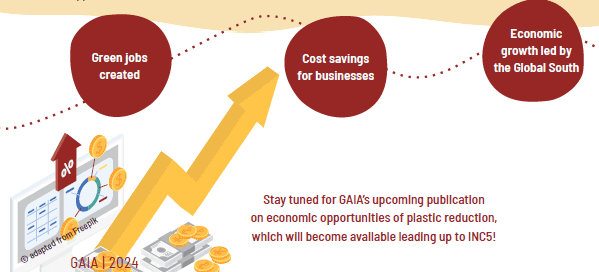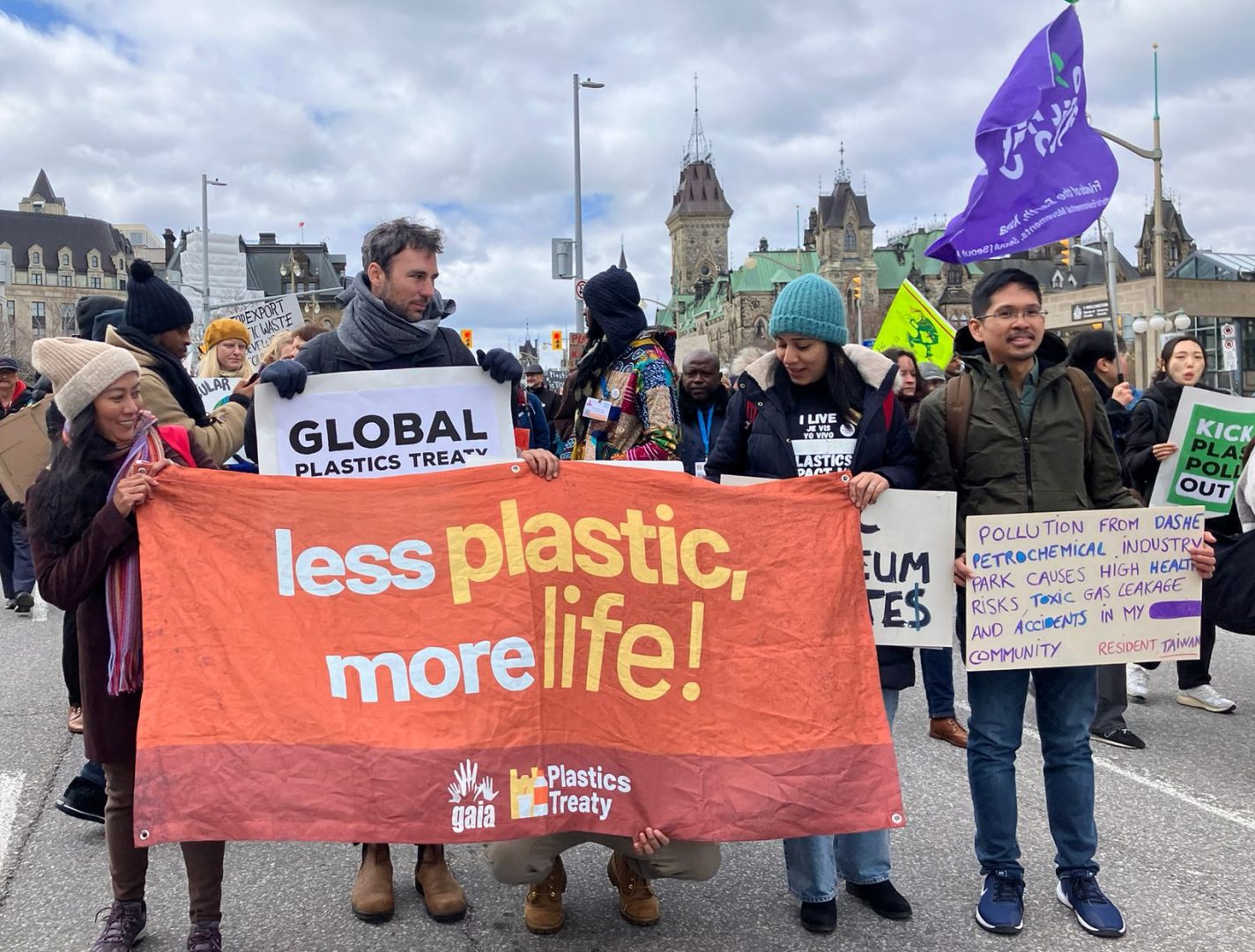Island communities face more challenges when confronted with the problems posed by single-use plastics. As a response to these challenges, GAIA Island communities face more challenges when confronted with the problems posed by single-use plastics. As a response to these challenges, GAIA Asia Pacific is launching this latest publication, Community Voices: Impacts of Single-Use Plastic Regulations on Philippine Coastal Communities. This highlights different experiences of waste management implementors from Siquijor, San Carlos, and Dumaguete City in implementing their single-use plastic regulations.
When China closed its borders to foreign waste in 2018, countries in Southeast Asia were flooded with garbage masquerading as recycling, primarily from wealthy countries in the Global North. This investigative report uncovers how communities on the ground were impacted by the sudden influx of foreign pollution, and how they’re fighting back.
With organics making up more than 50% of solid waste in Asia, managing this waste stream will have a huge impact on waste management and the reduction of methane emissions.
With superb illustrations and easy-to-follow instructions, “Back to Earth” encourages people to explore every facet of composting: whether in a sprawling backyard or in a limited space such as a high-rise apartment, composting can be customized to suit any situation.
The most important message, however, is that composting is a simple and yet effective step anyone can take to help alleviate the burden on our landfills, replenish soil nutrients, and reduce carbon and methane emissions.
The scale of global plastic pollution has been brought to light in recent years. Over 300 million tonnes of plastic is produced each year, and more than 90 percent of it ends up in landfills, waste dumps, incinerators, and on lands and waterways. Like many other countries in Southeast Asia, Indonesia is dealing with growth in both domestic consumption of single-use plastic and waste arriving at the ports in the name of trade. Indonesia has been labelled as the second largest contributor to ocean plastic leakage after China. In addition to the amount estimated to leak into waterways and the ocean (9 percent of the 4.8 million tonnes of plastic waste generated in Indonesia every year), the majority of plastic waste in the country is being inadequately managed through open burning (48 percent), dumping on land or dumpsites (13 percent).
In response to the unprecedented plastic pollution crisis, fast-moving consumer goods companies and the petrochemical industry have supported and promoted countless miraculous-sounding technologies, pushing back on their bad reputations as major plastic polluters. CreaSolv is Unilever Indonesia’s flagship project on this front, and the media has touted it as an example of a technological innovation that can solve the entire global plastic waste problem by recycling the lowest-value plastic.
Two years after the highly-celebrated launch of the pilot plant in Indonesia in 2017, however, the fuss around the CreaSolv project quieted down as the company secretly shuttered the operation. Reports from local investors revealed multi-layered fallout of the CreaSolv project, from the logistical difficulties of sachet collection through challenged economics around the end products.
In 2019, GAIA Asia Pacific members gathered in Penang, Malaysia for a series of activities, which culminated in a regional meeting where we set our objectives for the next three years (2020-2023).
Just months after the regional meeting, the world confronted the uncertainty and threats of the COVID-19 pandemic, making work on the ground doubly difficult, as the pandemic also exacerbated the already widespread and systemic injustices that we have long been fighting.
In the face of these challenges, GAIA members remained steadfast in their commitment for a better world. This publication, “POSSIBLE TOGETHER,” is a proof of that.
As written by GAIA International Coordinator, Christie Keith, in her message, “The organizing stories in the publication are a testament to how hard GAIA members have worked since early 2020 – despite great personal risk – to create visionary Zero Waste solutions and oppose toxic pollution. These are stories of cultural survival, fierce resistance, and local transformation.”
It takes a network to have a fighting chance when faced with challenges of this magnitude, and collectively, GAIA members rose to the occasion. They extended each other a helping hand and made sure that their communities would not be left behind.
The work may be daunting; and the times, challenging. But difficult can become easy; and the impossible, possible when when people work together.
Presently, several Asian countries have national regulations or bans on single-use plastics. Bangladesh, the first country to have a national ban on plastic bags, passed the ban in 2002[1], long before the problem of single-use plastic bags became a mainstream issue. China issued a ban in 2020 with phased implementation[2], the first phase of which started at the end of 2020 and the last phase commencing in 2025. India also issued a ban on single-use plastics that will take effect in 2022[3]. Implementation has generally been found to be wanting and some national bans have been said to be riddled with loopholes. In countries without a national plastic regulation or ban, local governments have taken it upon themselves to regulate single-use plastics.
Against the backdrop of a global plastic pollution crisis, a growing number of cities and municipalities in the Philippines have passed ordinances that ban shopping bags and ohter single-use plastics (SUPs).
The Zero Waste City Manual: A toolkit to establish city and community Zero Waste systems by GAIA member Citizen consumer and civic Action Group (CAG) presents a practicable plan for municipalities to process waste, aggregate recyclables and domestic hazardous waste at the zone level, and leverage the private formal and informal waste networks in all Indian cities. Prepared based on ground experience working with the Greater Chennai Corporation to transition from a centralized waste to a Zero Waste system, the manual can be adapted to other cities based on their local context.
The report Sachet Economy: Big Problems in Small Packets looks into the sachet economy in the Philippines that continues to add to and worsen the growing plastics pollution problem, how the big businesses corrupted Filipino’s tingi culture, and a new study by the Research Center for Social Sciences and Education of the University of Santo Tomas that looks into the public attitude towards plastic pollution. The report presents new findings and recommendations for companies and policymakers to address the onslaught of plastic sachet waste in the Philippines.




























